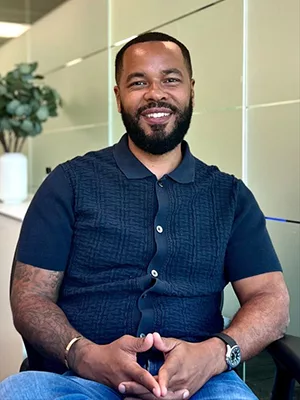The true meaning of workplace culture, as seen through the eyes of Dubai employee expert Ryan Jackson, CEO of Culture First Recruitment.
CREATING A HUMAN-CENTRIC WORKPLACE
Workplace culture is a term thrown around frequently in the business world, but what does it actually mean?
For too long, the term “corporate culture” has been a soulless concept, lacking any type of emotion and focused solely on profits over people. Thankfully, the global pandemic brought about a “new normal” which has ultimately redefined the true meaning of culture in the workplace by humanising the terminology for the modern era.
In the last four years, the number of job-to-job moves across the globe has been incredibly high. Employees across every sector, from construction to healthcare, have been standing up for their rights to work in an environment that puts them and their needs first.
In the United Arab Emirates, a prevalent challenge for businesses, particularly those in Dubai, is the low retention of employees, especially expatriates, which correlates with the levels of morale within the organisation. While financial incentives like higher salaries and tax exemptions attract expats, organisations must realise that monetary compensation alone will not suffice long term. Without additional incentives, of which there are potentially many, employees are prone to seeking better options elsewhere.
Interestingly, people are also standing up for other employees’ rights too, and that’s why big businesses that have enforced a return-to-office mandate have been scrutinised so heavily on social media and in the press. Workplace culture now affects how successful a business is internationally, so it’s imperative leaders get it right and foster a human-centric approach before it has detrimental consequences.
TOXIC WORKPLACE CULTURES
Many organisations suffer from deep-rooted cultural issues that create toxic environments. A lack of transparency and rigid hierarchical structures often leave employees feeling disconnected from the company’s goals, strategies, and decision-making processes. This lack of trust between leadership and staff hinders collaboration, innovation, and effective problem-solving, with inflexible reporting lines ultimately slowing down operations, in turn halting a company’s ability to adapt to changing market conditions and stay competitive.
Micromanaging leadership styles that prioritise long hours and create high-pressure environments are another widespread problem. This approach frequently leads to unsustainably high-stress levels, burnout, decreased job satisfaction, and high turnover rates among employees. Organisations operating this way struggle to attract and retain top talent, hindering their growth and competitiveness.
FOSTERING A HUMAN-CENTRIC CULTURE
In stark contrast to these toxic environments, a positive workplace culture is a vibrant and inclusive atmosphere that embraces empathy, compassion, and the full depth of offering a human-centric approach to culture. Fostering such an environment demands a philosophical shift – leaders must be willing to challenge traditional corporate norms and place employee well-being above relentless profit ambitions. This begins with leadership that comes from the heart. Authenticity, vulnerability, and truly valuing the diverse perspectives of the workforce are paramount. Leaders should strive to embody the principles of empathy, emotional intelligence, and creating safe spaces where team members feel valued enough to voice their thoughts and concerns.
Developing this human-centric approach also requires mastering the art of listening. Too often, leadership heads aim to dictate rather than engage in a collaborative dialogue with employees. By genuinely hearing the insights, experiences, and viewpoints of their workforce, leaders can make better-informed decisions to aid business success. This spirit of collaboration and inclusivity also ensures employees are empowered enough to take their own calculated risks and learn from failures rather than living in fear of rebuke.
A BRIGHTER FUTURE FOR WORKPLACE CULTURE
Ultimately, redefining workplace culture demands much more than just superficial changes to policies or work practices. It requires a fundamental mindset shift – a willingness to reject the antiquated notion that business success requires sacrificing core human values like empathy, balance, and personal well-being.
No longer should “corporate” be viewed as a soul-crushing force that dominates our core values as people. Instead, we can redefine the modern workplace culture as one that nurtures and uplifts the human spirit.
Together, we can create a culture where workplaces are engaging, fulfilling spaces that bring out the best in every team member. A future where inclusivity, compassion, and personal growth are woven into the fabric of an organisation’s ethos, paving the way for an employee’s happiness, creativity, and innovation. Replacing toxic practices with vulnerability-based leadership will take immense effort, but the potential rewards – healthier, more engaged, and higher-performing teams – make it well worth the journey. It’s time to embrace this new, more holistic vision of what a thriving workplace culture can be.



















